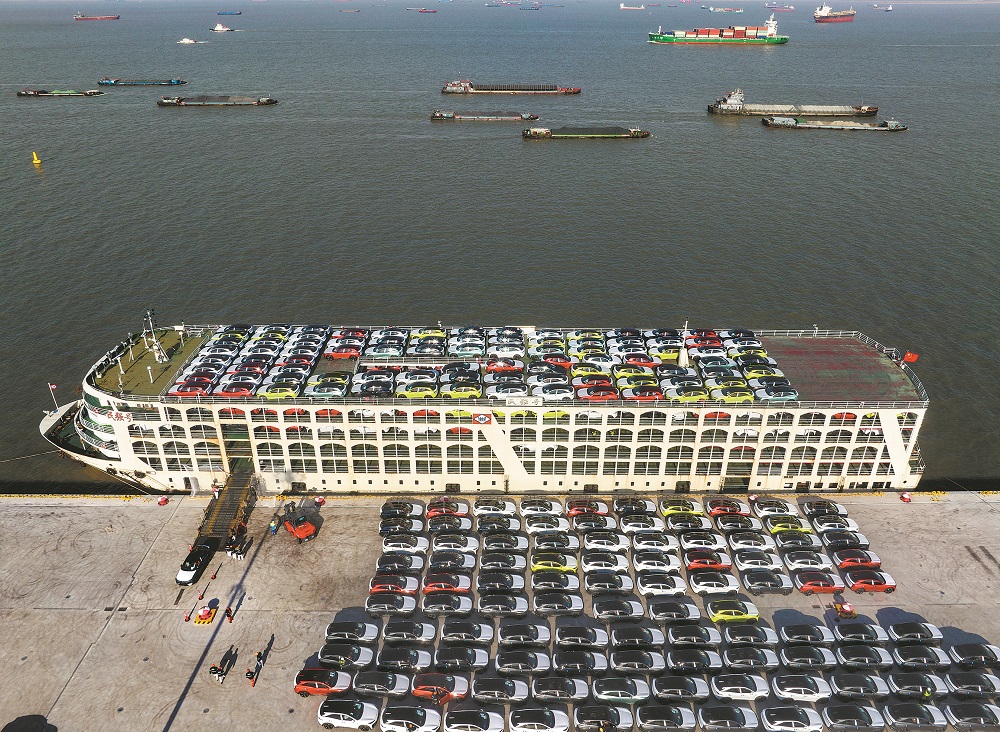Tariffs on electric cars and batteries criticized
Experts see US actions as failed policy that is likely to backfire






Editor's note: The United States has announced that new tariffs will soon be imposed on Chinese imports such as electric vehicles. China Daily examines experts' concerns over the adverse effects such action may have on US consumers and others, and on climate change objectives.
Steep tariff rises by the US on Chinese electric vehicles and batteries are likely to backfire, hurting consumers and companies and hampering climate goals, experts say, even though the stated goal is to protect US manufacturing jobs.
On May 14, US President Joe Biden directed the office of the US Trade Representative to increase tariffs on $18 billion worth of Chinese goods, including electric vehicles, lithium-ion batteries, semiconductors, solar cells, medical supplies and certain critical minerals and metal products, after reviewing existing tariffs under Section 301 of the Trade Act of 1974. The office announced last week that the changes will take effect on Aug 1.
The greatest increase applies to Chinese-made EVs, with tariffs rising from 25 percent to 100 percent. However, the practical immediate impact of this measure is minimal because there are few Chinese EVs in the US market.
More concerning for the industry is an increase in tariffs on Chinese EV batteries and parts, from 7.5 percent to 25 percent. This directly affects US EV makers such as Tesla and Ford, who rely on Chinese lithium iron phosphate batteries for some models.
The tariffs are likely to result in higher prices for EVs and batteries for US consumers, said Soody Tronson, an IP law expert in Silicon Valley, California, with a focus on the energy sector.
"The lack of competition will likely result in price increases. We have to consider how these tariffs affect everyday Americans."














